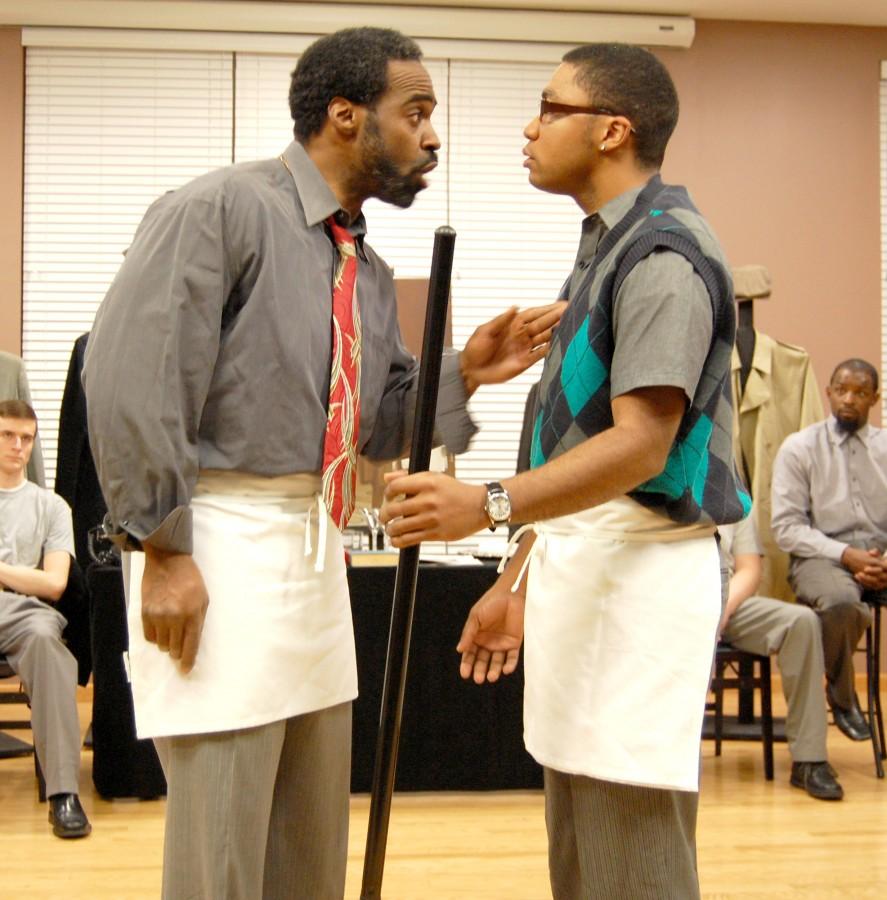“It was personal. We really hadn’t planned on starting anything.”
With these words, an unnamed character introduces the audience to “Periphery,” Ed Simpson’s play about the Woolworth’s sit-ins in 1960. A small audience gathered in the Community Center Multi-purpose Room on March 2 to watch the play, brought to campus by the Bonner Center for Community Learning.
Subtitled “Conversations about the Greensboro Four,” “Periphery” follows characters on both sides of the sit-ins. Black and white protesters alternate scenes with characters who oppose the sit-ins and those who cannot understand why the protests are happening.
“The play puts a human face on every point of view,” said actor Thomas Barker. “It isn’t, if you’ll excuse the expression, a black and white issue.”
Barker played the role of Jerry, a protester who opposed the Woolworth’s sit-ins. According to Barker, everyone has the capacity to act like Jerry.
“If we get scared enough, if we feel like our rights or our way of life are being attacked, it’s easy to turn into Jerry,” said Barker.
Though the play encompasses characters in many different situations, the two central protagonists are Mike, a white student at Guilford College, and Eugene, a black student at The Agricultural and Technical College of North Carolina (now North Carolina Agricultural and Technical State University). The young men struggle with the decision to join the protesters. Eugene explicitly defies his father by joining the sit-ins.
“I need to be a better man so I can make a better world,” said Eugene, played by Bobby Pittman. “I need to join them.”
The climax of the play comes when Mike and Eugene are arrested and their fathers meet at the jail. Phil, Mike’s father, and Nate, Eugene’s father, must reconcile their sons’ idealism with their own conceptions of what is moral and appropriate.
The play’s portrayal of characters who are not central to the sit-ins gave the play its name, “Periphery,” which refers to the edge or boundary of an area. According to Barker, the characters in the play are all people “on the edge” of the Woolworth’s sit-ins and subsequent demonstrations. Even the 1960’s were situated on a periphery: the end of one era and the beginning of a new one.
James Sims, who played Nate, said that his participation in the play was a result of reading the script and being affected by its powerful narrative.
“Once I knew the story, I just had to be part of it,” said Sims.
Lee Wilson, a first-year at the University of North Carolina at Greensboro, portrayed Mike.
“It’s very important to remind people what happened (during the sit-ins),” said Wilson. “Especially people who haven’t heard the story, who aren’t from around here, or young people.”
According to Director of Community Learning James Shields, “Periphery” is an example of the power of the arts.
“We should be using the arts to educate the youth,” said Shields.
The young people in attendance — James and Washington Weah, 11 and 12, and Marie and Claudine Mukome, 11 and 13 — said that they enjoyed the play.
“I liked the way they showed the story and the way they acted,” said Washington.
“I didn’t know the story already,” said Claudine, “but I liked it a lot.”
Guilford students are told that they can “become more.” In “Periphery,” Mike uses what he learns about social responsibility at Guilford to stand up for what he believes is right. He quotes Gandhi, reminding the audience to “be the change you want to see in the world.”

